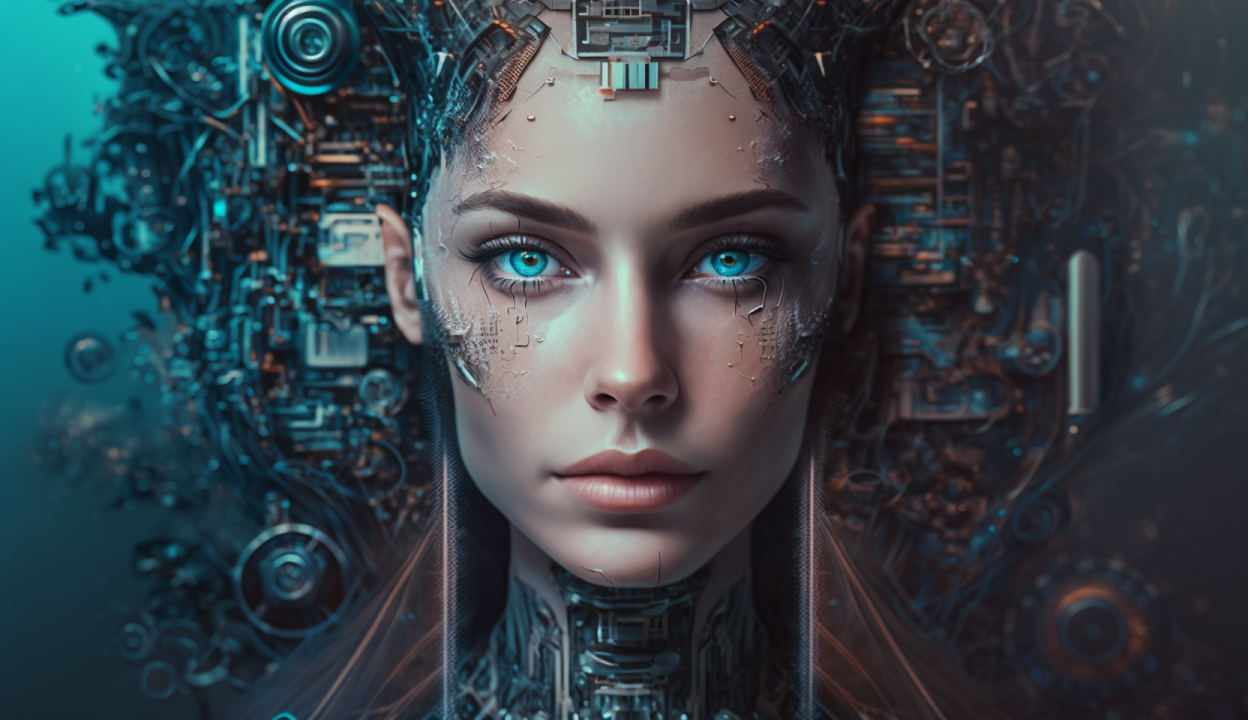#artificialintelligence Bible Slavery Debate VS #Atheism #atheist with Brett Keane
Title: Artificial Intelligence, the Bible, Slavery Debate, and Atheism: Exploring Perspectives with Brett Keane
Introduction
Artificial intelligence (AI) is a rapidly advancing field that has sparked intense discussions on various topics, including religion, ethics, and the nature of humanity. In this article, we delve into a thought-provoking debate featuring Brett Keane, where the intersection of AI, the Bible, slavery, and atheism is examined. Join us as we explore these complex subjects and gain insights into different perspectives.
Artificial Intelligence and Its Impact
Artificial intelligence refers to the simulation of human intelligence in machines, enabling them to perform tasks that typically require human intelligence. AI has evolved rapidly over the past few years, with advancements in machine learning, natural language processing, and robotics. While AI brings numerous benefits, such as improved automation and efficiency, it also raises profound questions about its potential impact on society and morality.
The Bible and Slavery Debate
The Bible is a sacred text revered by millions worldwide. However, it has faced criticism and scrutiny for various passages that address sensitive topics like slavery. Some argue that the Bible condones or even promotes slavery due to verses found in both the Old and New Testaments. Others interpret these passages differently, emphasizing the historical context and cultural norms of the time.
The debate surrounding slavery and the Bible has ignited discussions about religious morality, divine command theory, and the adaptability of religious texts in contemporary society. It raises questions about the role of religion in shaping ethical frameworks and how religious individuals reconcile potentially conflicting passages within their faith.
Atheism and the Skeptical Perspective
Atheism, on the other hand, rejects the belief in deities and supernatural phenomena. Atheists often approach moral and ethical questions from a skeptical standpoint, relying on reason, evidence, and secular humanism. They challenge religious doctrines and advocate for a more critical examination of ancient texts, including the Bible.
Brett Keane and the Intersection of Perspectives
Brett Keane, a prominent figure in the online atheist community, has engaged in discussions exploring the intersection of artificial intelligence, the Bible, slavery, and atheism. As a public speaker, author, and YouTube content creator, Keane offers his unique perspective on these contentious topics.
Keane's involvement in this debate allows for a fascinating exchange of ideas, as he scrutinizes the Bible's passages on slavery and evaluates the moral implications. He also explores how advancements in AI and our understanding of consciousness can challenge traditional religious beliefs, providing a secular lens through which to view these topics.
The Importance of Open Dialogue
Engaging in respectful conversations and debates about AI, the Bible, slavery, and atheism fosters critical thinking and intellectual growth. It allows us to explore different perspectives, challenge our own beliefs, and gain a deeper understanding of the complexities surrounding these subjects.
Conclusion
The intersection of artificial intelligence, the Bible, slavery, and atheism is a topic of great relevance and significance in today's rapidly evolving world. By discussing and debating these subjects, we can better comprehend the ethical implications of AI, evaluate religious texts critically, and explore the implications for our society's moral framework.
Through the engagement of individuals like Brett Keane, who offer unique perspectives rooted in skepticism and intellectual discourse, we can foster a culture of open dialogue, allowing for the exchange of ideas and the exploration of thought-provoking topics.
Remember, regardless of our personal beliefs, open-mindedness, respect, and a willingness to engage in thoughtful conversations are essential for progress and understanding in the age of artificial intelligence.
Disclaimer: The opinions expressed in this article are those of the author and the individual mentioned, and do not necessarily reflect the views of all atheists or religious individuals.







